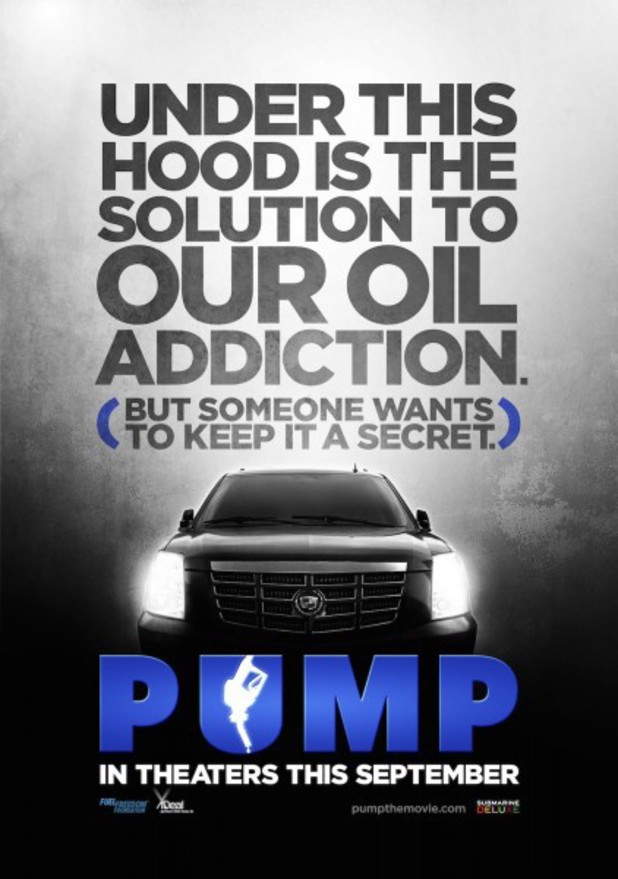This new advocacy doc is essentially the bastard child of Who Killed the Electric Car? and Fuel (also directed by Joshua Tickell). If you’re in the market for a Nissan Leaf, if you’re eager to run your present car on biodiesel or other alternative fuel, if you’re keen on conspiracy theories, this movie is for you. Did you know that Prohibition was a gambit by Standard Oil baron John D. Rockefeller to prevent Henry Ford from allowing his cars to run on ethanol? In this version of history, uncorroborated by actual historians, the temperance movement never existed. Certainly Big Oil has had undue influence in Washington, D.C., but is that the only reason for the petro-monopoly of the marketplace? The film’s producers, affiliated with the Fuel Freedom Foundation, allow no such quibbles or nuance.
Relentlessly optimistic and one-sided (even for those who may agree with that side), Pump is too much the infomercial, with plugs for Elon Musk and Tesla, biofuel peddlers, and various hackers selling semi-legal fuel conversion kits. It takes 40 minutes of historical recap—Rockefeller, Ford, Nikola Tesla, OPEC, the Gulf Wars—to get to the film’s belabored thesis, which boils down to the cheerful twin mantras of empowerment and choice.
Yes, electric cars—mostly powered by coal, let’s note—and flex-fuel vehicles are a good thing, but is Brazil, with its government-mandated sugar-cane fuel industry, really the right economic model for the U.S.? Pump insists so. So fixated is the film on the original sin of oil that it never for a moment addresses sprawl or mass transit. If you gave every Seattle-bound commuter a free Tesla, the city would become a giant, emission-free parking lot. Is oil the problem here or single-car driving from the suburbs? Pump makes no such distinctions.
Jason Bateman narrates, though there is no mention of transportation alternatives like carpooling, the stair car, or hop-ons. Opens Fri., Oct. 3 at Sundance. Not rated. 88 minutes.
bmiller@seattleweekly.com








